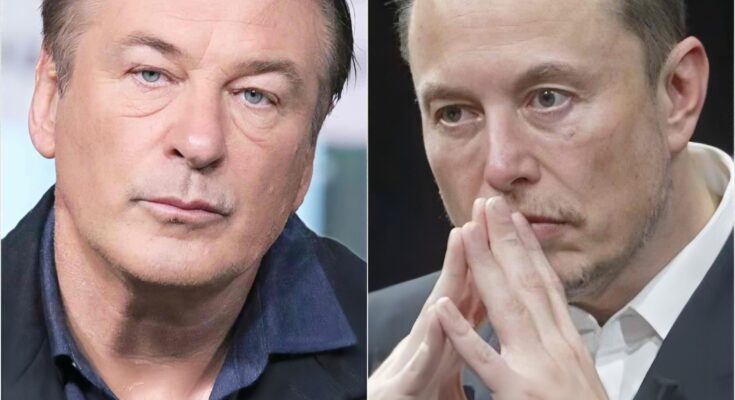Alec Baldwin, a name synonymous with Hollywood prestige, has found himself embroiled in yet another controversy—this time involving billionaire entrepreneur Elon Musk. Known for his outspoken nature, Baldwin’s recent remarks about Musk have not only drawn widespread attention but also sparked significant backlash, potentially costing the actor an estimated $86 million. The situation, which has escalated rapidly, underscores the risks of celebrity statements in the digital age.

The controversy began during an interview where Baldwin, never one to shy away from candid commentary, referred to Musk with four words that have since gone viral: “reckless, opportunistic, and dangerous.” The statement, which Baldwin elaborated on as criticism of Musk’s business practices and public persona, quickly gained traction online. However, the fallout from these remarks appears to be far more severe than Baldwin might have anticipated.

Within hours of the interview’s publication, social media platforms lit up with polarized reactions. Fans of Musk, often dubbed “Musketeers,” were quick to defend the Tesla and SpaceX CEO, accusing Baldwin of unwarranted attacks and jealousy. Others applauded Baldwin for speaking out, viewing his comments as a rare instance of celebrity critique against powerful figures in tech and business. Yet, the backlash from Musk’s loyal supporters has proven to be particularly damaging for Baldwin, both professionally and financially.

Several of Baldwin’s upcoming projects have reportedly been put on hold or canceled outright as a result of the controversy. Industry insiders suggest that production companies and sponsors are wary of associating with the actor amid such a divisive situation. Baldwin’s public image, already tarnished by previous incidents, has taken another hit, making him a less attractive prospect for major deals. One anonymous producer stated, “In today’s climate, any controversy can quickly spiral out of control. Brands and studios don’t want to take that risk.”
The financial implications for Baldwin are staggering. Analysts estimate that the combined loss of endorsement deals, film contracts, and other revenue streams could amount to as much as $86 million. This figure includes the suspension of a lucrative brand partnership that was expected to net Baldwin millions over the next few years. The swift and severe nature of these repercussions highlights the precarious balance celebrities must maintain in their public and private lives.
Baldwin’s relationship with controversy is not new. Over the years, the actor has made headlines for a series of high-profile incidents, including public altercations and politically charged statements. While his fans often defend him as passionate and unapologetically honest, critics argue that Baldwin’s penchant for controversy has overshadowed his artistic achievements. The Musk incident appears to be the latest chapter in this ongoing saga.
On the other hand, Musk’s response to Baldwin’s remarks has been characteristically unorthodox. Rather than issuing a formal statement, Musk took to Twitter—his preferred platform—to post a cryptic message: “Drama, drama, drama. Focus on innovation, not insults.” The tweet, which many interpreted as a veiled jab at Baldwin, garnered millions of likes and retweets, further fueling the online firestorm. Musk’s ability to turn public criticism into an opportunity to reinforce his brand image is a testament to his savvy as a media strategist.
The incident also raises broader questions about the power dynamics between celebrities and influential figures in other industries. While Hollywood actors have long been viewed as cultural influencers, the rise of tech magnates like Musk has shifted public attention and admiration toward entrepreneurship and innovation. In this context, Baldwin’s criticism of Musk might be seen as emblematic of a larger clash between traditional entertainment figures and modern-day tech icons.



